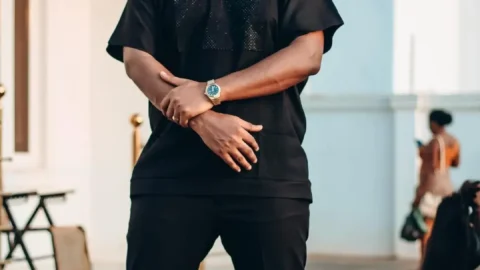Gérard Depardieu, a name once synonymous with French cinematic brilliance, now carries a darker, more troubling legacy.
The 76-year-old film star was found guilty of sexually assaulting two women on a film set in Paris. A Paris court handed him a suspended jail term of 18 months, a decision that sent ripples through the French film industry.
The accusations against Depardieu stemmed from his behavior during the production of a 2021 film, where two women accused him of groping them. One of these women, Amélie, worked as a set dresser.
Her account of the events remained unwavering throughout the investigation. “I am very moved,” Amélie told reporters outside the courtroom, her voice steady yet charged with emotion. “This verdict is a victory, a major step forward.”
The second woman, known only as Sarah, an assistant director, chose to protect her anonymity throughout the trial. Despite her decision to remain unnamed, her testimony proved pivotal.
She described the unsettling encounters, detailing how Depardieu touched her inappropriately, a claim the court found credible.
Carine Durrieu-Diebolt, the lawyer representing the two women, expressed a sense of justice served. “It’s a victory for two women on a film set, but it’s a victory for all the women behind this case,” she stated firmly.
“I am thinking of all of Depardieu’s other victims.” Her words were a clear indication of the wider impact this case had beyond the courtroom.
The court’s judgment came just hours before the Cannes Film Festival was set to begin, a symbolic reminder of the ongoing struggles within the film industry.
Judge Emmanuelle Vasseur, who presided over the case, emphasized that there was no reason to doubt the accounts of the two women. “The consistency in their testimonies speaks for itself,” she declared in court.
As part of the ruling, Depardieu was placed on a list of sex offenders and ordered to pay €1,000 to each of the victims for what the court termed “secondary victimization.”
This legal term referred to the additional suffering the women endured due to the grueling trial process.
Depardieu was not present in court to hear the verdict. Instead, he was on a film set in the Azores, working on a new project with his longtime friend and collaborator, Fanny Ardant.
This absence did little to silence his voice, however. In a statement released after the verdict, he maintained his innocence, insisting that his actions were misinterpreted.
“My name has been dragged through the mud by lies and insults,” Depardieu stated. “A trial can be a very special experience for an actor. Seeing all this anger, the police, the press. It’s like being in a science fiction film, except it’s not science fiction. It’s life.”
The defense, led by Depardieu’s lawyer Jérémie Assous, insisted that the accusations were baseless. Assous portrayed the two women as unreliable and accused them of seeking fame at the actor’s expense.
“They cannot bear that there should even be a defense. They think any defense is a supplementary assault,” he argued in court.
But the prosecution painted a different picture. Laurent Guy, the lead prosecutor, countered this narrative sharply.
“It’s perfectly possible to be an excellent actor and a great father – and still commit a crime,” Guy asserted.
“You are not here to pass judgment on French cinema. You are here to judge Gérard Depardieu, just as you would any other citizen.”
In the wake of the trial, the French film industry found itself divided. Fanny Ardant, who had worked alongside Depardieu in the controversial film Les Volets Verts, defended her friend.
“Genius – in whatever form it takes – carries within it an element of the extravagant, the untamed, the dangerous,” she declared. “Depardieu is the monster and the saint.”
Yet for Amélie and Sarah, the verdict was a moment of closure. For them, the trial was not just a fight against a man but against a culture that too often protected powerful figures.
“This is just the beginning,” Amélie said, her voice resolute. “We must continue to speak out.”








